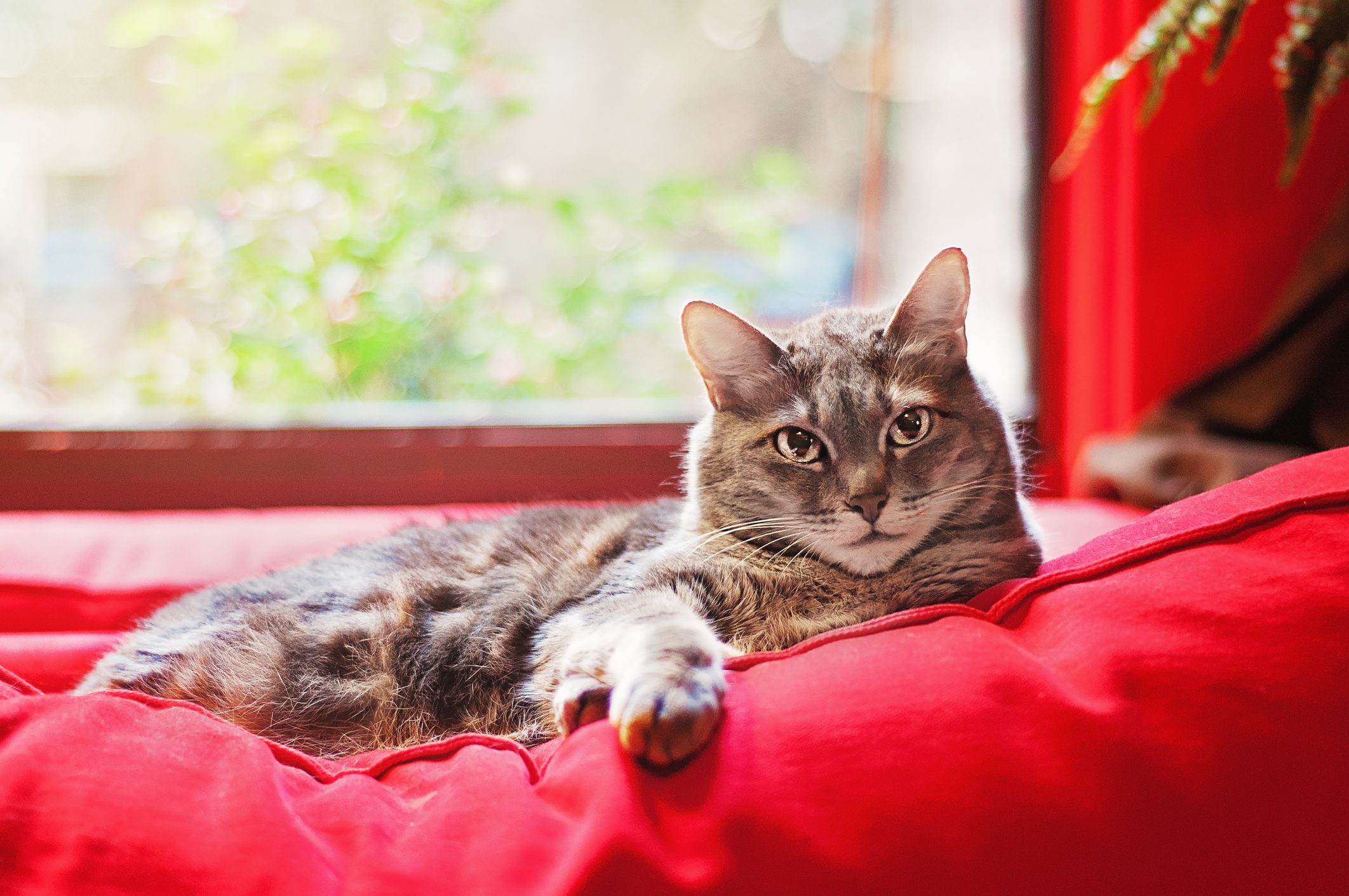
8 Easy Ways to Help Cats Age Comfortably and Happily
As cats age, their bodies endure many changes. They start to slow down, sleep more and might experience more stiffness or pain than they used to. Older cats are also more likely to experience age-related declines in vision and hearing, and their brains might not be as quick as before. Experiencing these changes can be difficult for some cats, and they often need a little assistance from their pet parents to age gracefully and comfortably.
Cats are typically considered “seniors” when they reach around 12 to 14 years old. At this point in their lives, their needs will be quite different from when they were kittens or adult cats. Catering to these needs at home can make the aging process much easier on your furry friend, so they enjoy their transition into their senior stage of life.
Here are a few simple things you can do to make sure your kitty is aging comfortably in your home.

- Make necessities more accessible: Senior cats are more likely to develop joint problems like osteoarthritis, which makes it more difficult for them to move around. To help them navigate your home more easily and pain-free, make some simple adjustments to your layout. Move food and water bowls closer to your cat’s bed or resting spot. Make sure all of their necessities are on the main floor of your home, so your cat doesn’t have to climb stairs. Additionally, add extra litter boxes throughout your home to make them more accessible. It may help to switch to shallow litter boxes with lowered sides, so your cat and get in and out more easily. Finally, consider whether your cat is able to get up to their favorite spots to rest with ease. If they can’t jump like they used to, providing ramps or stairs can help them get up to your bed, the couch or their favorite perch.
- Invest in an orthopedic bed: Orthopedic beds might sound like a luxury only built for humans, but they can be extremely useful for older cats, as well. Orthopedic cat beds are made with extra padding that cushions the body and relieves pressure put on the joints. This can be helpful for senior cats, who typically have reduced muscle tone and stiffer, painful joints.
- Keep their cozy spots warm: Cats have a higher body temperature than humans, which is why they’re so drawn to sun patches and warm blankets. As cats age, their circulation may not be as good as it used to be, causing them to feel colder. Providing your cat with a nice, warm spot to lounge in will help them stay cozy while they nap or relax. Make a nest of blankets for your cat to curl up in or look into pet-safe heated blankets or beds (just make sure to turn them off so they don’t get too hot or pose a fire risk!).
- Activate their mind: Not only do senior cats’ bodies slow down with age, their minds do, too. Feline cognitive dysfunction can make your furry friend feel anxious or scared, and they may forget how to do everyday tasks. To help them stay sharp, provide your cat with ample opportunities for mental stimulation, such as puzzle feeders, toys and observation perches.
- Schedule more frequent vet visits: While adult cats typically visit the vet for an annual exam, senior cats might need to go more often. This is because senior cats are more likely to face a number of health risks. Generally, older cats should see the vet every six months, with a comprehensive exam complete with testing once a year.
- Give them supplements: Health supplements can support your cat’s health at every life stage, but they are particularly beneficial in your cat’s senior years. Natural supplements can be used for a range of health problems, as well as for general health support like immunity and inflammation reduction. Anti-anxiety or calming supplements like melatonin might also be useful for cats with cognitive dysfunction, so they sleep more soundly at night and don’t cry out as often.
- Help them with grooming: Senior cats often have a harder time contorting their bodies to groom themselves. Give your cat a helping hand by brushing them more regularly and trimming their fur to reduce the risk of mats or clumps around the mouth and anus. Cats with arthritis might also struggle to keep their claws shed and sharpened. Trim them more often to prevent ingrown nails and paw pad injuries.
- Keep your home consistent: Your cat has lived a long, full life and is likely stuck in their ways. Help them stay comfortable by avoiding major household changes. Things that seem simple, like rearranging the furniture, can not only stress your cat out but can also make navigating more difficult if their vision is declining. Now is also not the best time to bring a new animal home that might annoy or bully your older cat. Try your best to keep your kitty’s lifestyle as normal as possible and give them lots of TLC.
Taking care of senior cats is not difficult—it merely requires more patience and understanding of the changes they are going through. By paying closer attention to your cat’s needs, you can provide the support they need to age gracefully.


